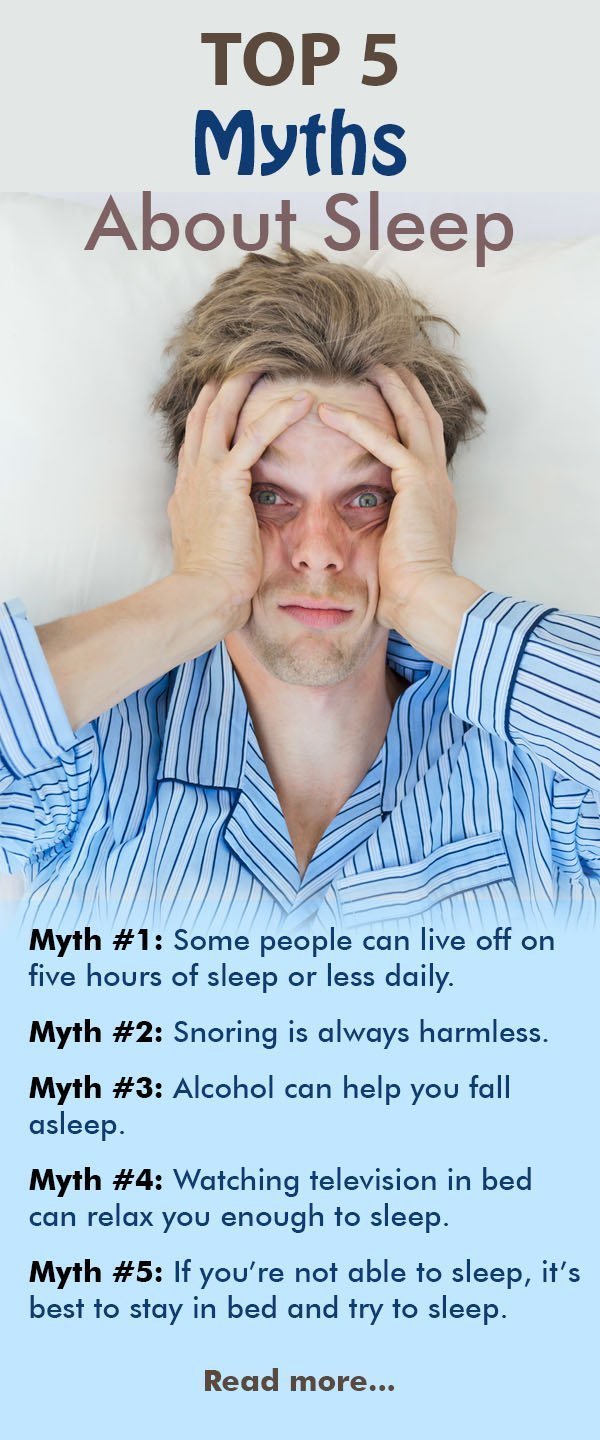Nowadays, in such a high-tech and work-driven society, sleep is hard to come by. At least 68% of Americans have trouble sleeping on a weekly basis. And it’s a problem that’s expected to get worse as Americans are estimated to spend $11 billion more on sleep aids on top of their previous $41 billion.
But why exactly is sleep such a significant issue? Surely, the United States has enough wealth to keep us properly supported in sleep.
Unfortunately, sleep is caused by a number of factors, and one of the main ones indicates that it’s not a lack of financing, but a lack of proper knowledge that’s the problem.

Sleep is crucial, but some common myths can undermine it.
According to researchers from the NYU School of Medicine, there are at least 20 common sleep myths that may be impairing people’s sleep hygiene. In an effort to combat these myths, researchers have suggested areas of knowledge that the public should learn more about.
Some of this information can be found through their debunking of the following myths.
Myth #1: Some people can live off on five hours of sleep or less daily.
While you might hear many people swearing by the fact that they feel just fine on five or fewer hours of sleep, you might want to listen with some skepticism in mind. No matter the person, if they sleep consistently with that amount of sleep, they increase their risks for a number of unwanted health concerns, such as cardiovascular disease or early mortality.
To avoid that risk, you’ll want to sleep for seven or eight hours on a regular basis.
Myth #2: Snoring is always harmless.
While snoring can be harmless, it isn’t always. So if you or your partner notices that you’ve recently been snoring quite a bit, get it checked out. It very well could be a sign of sleep apnea. This sleep disorder occurs when your breathing stops and starts throughout the night, and it can cause many health issues like high blood pressure and type 2 diabetes.
Myth #3: Alcohol can help you fall asleep.

Technically, this myth is true. But it is deceptively true. While drinking alcohol will help you fall asleep quickly, it won’t give you the same level of quality of sleep you’d get without it. It takes you out of the rapid eye movement stage and lower stages of sleep, so you do get some rest. But you won’t get the rest you need to feel restored.
Myth #4: Watching television in bed can relax you enough to sleep.
Unfortunately, as entertaining as watching television in bed can be, it won’t put you to sleep that quickly. Instead, you may find yourself feeling a bit more awake as you watch stressful events play out on the news. What’s more, as you stare at the bright light emitting from your television screen, your brain will wake up even further. Why? Well, this light is similar enough to daylight to your brain that it actually signals to your body that it should be waking and getting ready for a new day. So avoid that light entirely from your television and any other electronic devices before bedtime. Otherwise, you may find it much harder to get some rest.
Myth #5: If you’re not able to sleep, it’s best to stay in bed and try to sleep.
If you’re already having difficulties with sleep, forcing yourself to try to stay in bed and sleep will not help. In fact, it may eventually cause your mind to equate your bed with insomnia, which in turn, will worsen your sleeping difficulties.
What you can do instead is go to another room and do something that’s relaxing and mindless like folding socks. Eventually, this should help you feel sleepy enough to go back to bed and actually rest.
Have some of these myths impacted you?
Because these myths are considered to be common knowledge by many, you yourself may even have heard of them. If that’s the case, you’ve likely abided by them a time or two unwittingly. After all, no one likes the effects of sleep deprivation. It makes you more tired throughout the day, less likely to work or interact well, and more likely to get irritated as the day goes on.
But hopefully, as this research puts these sleeping myths to rest, you’ll have a better idea of what not to do to sleep better.
Consider talking to your doctor for help.
Sometimes knowledge is only part of the cure, however. You may very well know now how to get at least somewhat better sleep, but what if you’re still having difficulties?
Despite your best sleep hygiene efforts, you could be dealing with insomnia. Commonly caused by anxiety, stress, and depression, this condition can make it significantly difficult for you to fall asleep, even if you happen to be quite tired. As a result, you might find yourself waking up frequently throughout the night and feel drowsy during the day.
Luckily, in addition to enriching your sleep knowledge, you can also improve your sleep by talking to your doctor. As a professional health-care provider, they will be able to determine the best type of treatment to help your sleep, which could involve medication like SILENOR®(Doxepin).
If that is the treatment you’re prescribed, you may consider it too expensive to get. However, if you get equivalent drugs shipped through a licensed pharmacy referral service like Canada Drug Warehouse, you’ll be able to get your treatment for an affordable price.
Your sleep plays an important role in supporting your mental and physical health, so don’t fall for the common myths around sleeping and get your rest properly treated.


